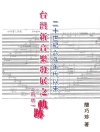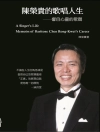In ‘Haydn, ‘ John F. Runciman presents a meticulous exploration of the life and works of Joseph Haydn, a pivotal figure in the development of classical music. Runciman combines detailed biographical narrative with musical analysis, allowing readers to appreciate Haydn’s contributions to the symphony and string quartet repertoire. The author’s elegant prose and accessibility invite both musicologists and general readers to engage deeply with Haydn’s innovative spirit, while contextualizing his works within the broader landscape of 18th-century European culture and the transition from the Baroque to the Classical period. John F. Runciman, a distinguished musicologist and historian, draws on extensive research and personal insights that inform his portrayal of Haydn. Runciman’s background in music theory and history of performance informs his critical interpretations, while his passion for classical music resonates throughout the text. His familiarity with the socio-cultural milieu of Haydn’s time enriches the narrative, revealing the complexities that shaped the composer’s creative output. This book is a must-read for anyone seeking to understand the nuances of classical composition and the legacy of Joseph Haydn. Runciman’s comprehensive yet engaging writing style makes this work not only an essential resource for scholars but also an enlightening experience for casual readers, ensuring that Haydn’s brilliance continues to inspire future generations.
Circa l’autore
John F. Runciman (1866–1916), a noteworthy English critic and essayist of the late 19th and early 20th centuries, made significant contributions to the field of music criticism and biography. Born in the Victorian era, Runciman’s work was shaped by the cultural and artistic milieu of his time. He established himself through his acute analyses of classical music and its composers, best exemplified in his monograph on the eminent composer Joseph Haydn. His book ‘Haydn’ is a meticulous work that delves into the life and creations of the Austrian composer, reflecting Runciman’s profound understanding of classical music and its historical context. Runciman’s literary style is marked by a blend of scholarly insight and accessible prose, making his writings valuable to both the academic community and the general public. His ability to dissect complex musical compositions and convey their essence in a lucid manner has earned him a lasting place in the realm of music literature. Despite the century that has passed since his death, Runciman’s writings continue to resonate with readers and scholars, proving the timelessness of his critical legacy.












